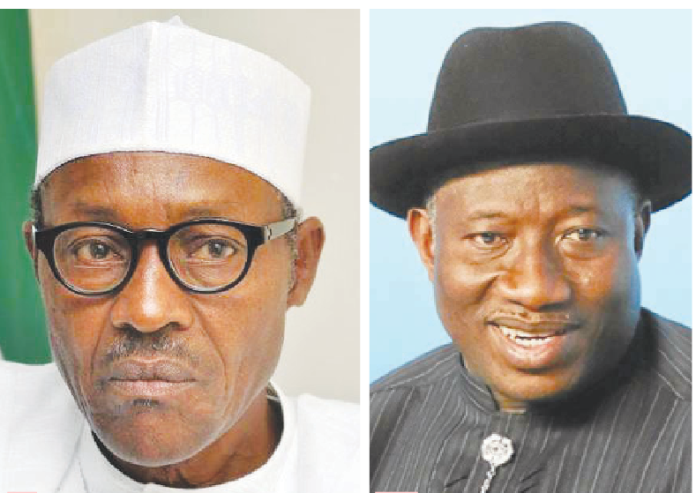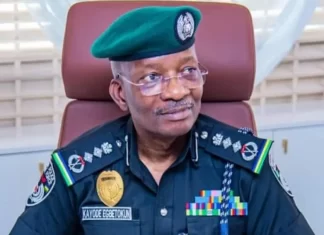The out-going year marked Nigeria’s out on the diplomatic front, wrapping up rather with government’s yet unclear foreign policy template, writes Correspondent, SAM NWOKORO.
Nigeria featured very prominently in the diplomatic front in 2015. Many factors were responsible for it. It was the year of election when Nigeria changed leadership at the national level. It was a year the international community rallied behind Nigeria to help it trudge on in the face of fundamentalist jihadists.
Many landmarks characterised Nigeria’s engagement with the global community. Many foreign investors registered interest to do business with Nigeria. Prospects of Nigeria’s economic strength inspired a flurry of trade delegations to Nigeria, even more after the general elections in March.
Nigeria got admiration from world powers and other countries for successfully holding a general election and accomplished a hand-over of power from one civilian administration to an opposition party without much hair-splitting. This raised the profile of Nigeria’s former President Goodluck Jonathan who later became a United Nations Peace Ambassador, the first time a former Nigerian president was to be so recognised.
Here, TheNiche recaps the major diplomatic issues that made headlines in 2015 and how they affect Nigeria’s present and future diplomatic engagements.
Multilateral intervention forces
The security challenges, which the country had been dealing with since 2009, worsened early in the year as the general elections approached. The Jonathan government began the process of assembling a multinational coalition force. By the end of March, the coalition force from Mali, Benin, Cameroon and Togo was formed, enlarged by an African Union (AU) unit of about 5,000 men fighting insurgency in the Maghreb region and some parts of West Africa, including Nigeria. The force was able to push back the insurgents and achieved some measure of success for the elections which held in February and March.
Consolidation of AU, ECOWAS security architecture
The year also marked the consolidation of various Economic Community of West African States (ECOWAS) and AU security architecture. AU formed a standing army.
The standing army of about 5,700 and the various summits of peace and security committees of the AU agreed on the inevitability of having a standing army to smother instability in the region. The ECOWAS also agreed to set up such. It was in 2015 that these supra-national groupings took the issue of security in the sub-region more seriously.
Pre-election diplomatic overtures against Boko Haram
Before the general elections in February and March, the menace of Boko Haram marred various aspects of the election: from voter registration to proper voting. This led Jonathan to commence frantic search for help in containing the insurgency, especially from the North East flank. It became clear that the Nigerian army was short-changed of arms and intelligence to effectively prosecute the war against Boko Haram.
The immediate past president’s first effort was to commit Washington to give Nigerian government arms to fight the insurgency. At various times, allegations that the Nigerian military engaged in right abuses during its campaign against Boko Haram in the North East was cited by Washington to deny the Jonathan government arms.
But at the exit of the Jonathan regime, the United States (U.S.) demonstrated more practical commitment in fighting the insurgency. So far, it has fortified the multi-national force in the North East with $5 million and has advanced pledges of about $2.3 billion. The aid was meant for the rehabilitation of internally-displaced persons (IDPs) in the insurgency-ravaged areas of the country. Nigeria’s fight against insurgency attracted global sympathy. The sympathy cuts across ideological blocs.
Global concerns on Nigeria’s polls
Nigeria’s general election in 2015attracted interests from all over the world. The attention was as a result of events preceding the election. The separatist behaviours of the fundamentalist Islamic sect threatened the peace of the country. And the international community feared that fractured election outcome could lead to war and spread within the sub-region.
The rampaging fundamentalist insurgency in most parts of West Africa and the Sahel region exacerbated this fear. In fact, for the first time in the history of the country, presidential candidates of the ruling and opposition parties were made to sign election peace treaties, witnessed by U.S. Secretary of State, John Kerry. There were also increased awareness about politics and participation in political process.
Xenophobic attacks
Nigeria had a sore deal with South Africa, as most Nigerian migrants in the country fall victims to xenophobic attacks from natives. Though Nigerians were not the only victims, they were largely affected because of the high number of Nigerians in that country. It nearly set off a diplomatic row between Nigeria and South Africa, but was largely played down by a government at home preparing for general election amid security challenges. Obviously, Nigeria was not in the mood to reason out any retaliatory action beyond verbal condemnation of the xenophobic attacks.
U.S. election mediation
Washington upstaged every other country in the world in positioning her big posture in Nigerian affairs. By various ways, Uncle Sam effectively mediated in the events leading to the Nigerian general election and even after. She specially sent Kerry, who compelled both the then ruling Peoples Democratic Party (PDP) and the opposition All Progressives Congress (APC), now the ruling party, to sign a pact that none of their members should foment trouble before, during and after the elections
Botched arms deal
Nigeria made botched efforts to procure military kits from Washington. But White House balked, citing that the Leahy Act prohibits countries’ army with human right violations record from obtaining arms from the U.S.
Goodwill aids to Nigeria
Nigeria’s successful conclusion of the 2015 presidential election rekindled global interests in its wellbeing. The new President, Muhammadu Buhari, enjoyed the endorsement of Washington, France, Great Britain, Italy, Germany, China and many other powerful countries and the G7 countries who invited him to their June meeting. Since then, trade delegations have been visiting Nigeria.
Shining at international fora
Nigeria registered her presence at many international meets. Her Ambassador to the United Nations (UN), Professor Joy Ogwu, chaired the August 2015 meeting of the United Nations Security Council (UNSC) and performed brilliantly to the admiration of the UN Secretary-General, Ban Ki-moon.
Also, former Director-General of the Securities and Exchange Commission (SEC), Arunma Oteh, was appointed as Vice President and Treasurer of the World Bank, while former Minister of Agriculture and Rural Development, Akinwunmi Adesina, landed the job of the President of African Development Bank (AfDB). Nigeria still retained her seat as Organisation of the Petroleum Exporting Countries (OPEC) President with the Minister of State for Petroleum, Ibe Kachikwu, taking over from former Petroleum Minister, Diezani Alison-Madueke.
UN at 70
Nigeria followed world leaders and other countries to celebrate the UN 70th anniversary in September. The occasion provided President Buhari the opportunity to register the country’s presence as a ‘Changed’ country which now conducts elections and hands over without the usual unsavoury stories associated with its elections.
The UN 70th General Assembly also provided nations, Nigeria inclusive, the platform to appraise efforts made in realising the objectives of the Millennium Development Goals (MDGs) which nations have been pursuing since the beginning of the millennium. UN members have been pursuing development in eight basic key areas: food security, rule of law, shelter, free basic education, child and maternal health, environmental sustainability, HIV/AIDS and malaria eradication. The programme ends this year 2015. From 2016, Nigeria, like every other nation, will be pursuing development through the Sustainable Development Goals (SDGs).
Officially known as Transforming our World: the 2030 Agenda for Sustainable Development, SDGs are an intergovernmental set of aspiration goals with 169 targets. They are geared towards eradicating poverty by 2030.














